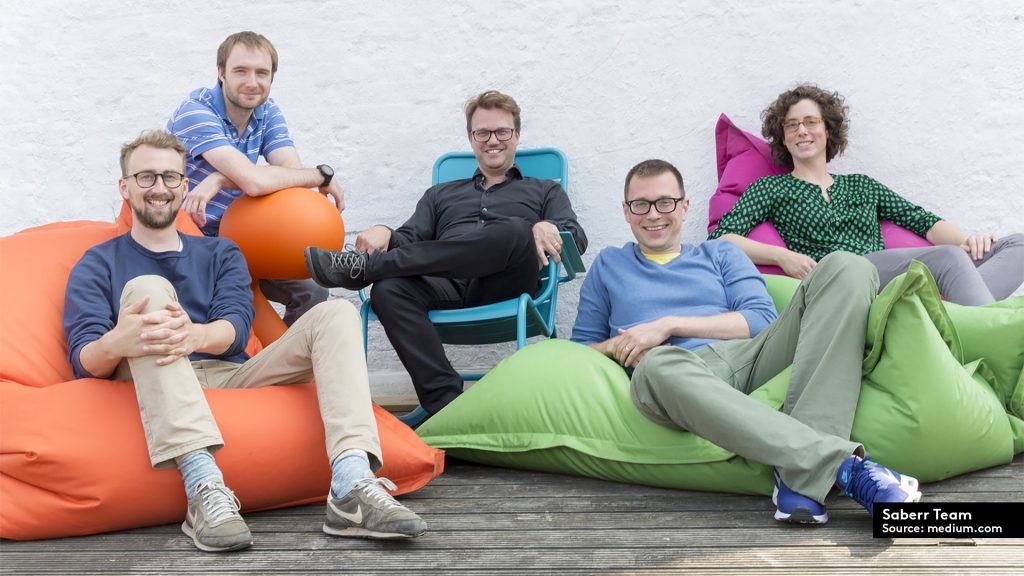Key Takeaway
The HR and recruitment process is due for an update along every step of the chain, from the application process, to CV screening, cultural evaluation, onboarding, team building and retention. Startups like Saberr, Mya, Headstart, Hired, Arya and Pivotal Talent are using the latest machine learning technology to bring external data into the mix and help you find the best candidates for your open roles.
Companies around the globe are under pressure to recruit the best-fit talent, both in terms of culture and skill set. Pivotal Talent [aims] to use the power of next-generation technology to bring a performance prediction model to the talent management landscape.
Today, finding the best fit for an open role goes far beyond ticking the skillset boxes. Cultural fit is becoming increasingly important, and retention significantly more difficult, particularly among the elusive millennial generation. According to a 2016 study by Deloitte, one in four millennials see themselves pursuing a new job in the next year, and 66% within the next four. Loyalty is at an all-time low. Yet we spend more of our lives working and interacting with colleagues than ever before, thanks to technology’s impact on creating virtually 24/7 accessibility.
The constant need to find more, better talent makes the role of the HR team and recruitment cycle increasingly demanding, and imperative. A survey from Indeed.com found that hiring will continue to increase in 2018: 61% of recruiters expect to hire more people in 2018 than they did in 2017, while 29% expect to maintain current headcount, and only 10% are planning to reduce their hiring.
With more open roles, more applicants and more data to take into account than ever before, recruitment and HR is the perfect use case for data-driven decision-making. Startups are leveraging the latest machine learning technology to make vast improvements to the process, from initial application to team coaching.

Taking aim at the CV
Like many outdated metrics that have been around for decades (see FICO scores), many elements of the CV appear to be going by the wayside. Now that we have precise machine learning technology, user-friendly chatbots and a host of behavioral science at our disposal, recruiters are finding more custom and in-depth ways of getting to know applicants that don’t stop at poring over thousands of CVs. And AI is helping them get there.
What does this mean for the recruiter? According to Jeremy Hindle, Co-Founder and CTO of HR startup Headstart, using algorithms to automatically match candidates with the right roles will empower HR teams to focus on the rest of the process. “For instance, how can you expect 3 graduate recruiters to go through 100k students in a fair way? It’s just not possible. We will allow recruiters to concentrate on the most important thing when doing their job: the people building the communities within a business, shaping their culture.”
External data and new, forward-looking metrics for evaluation
To do so, startups like Headstart will focus on new, data-driven metrics from external sources like customized candidate profiles and social media data, creating predictive scoring systems that go far beyond what can be found on a traditional job description. Juan Swartz, Co-Founder at Pivotal Talent, says, “We look at performance predictors such as skills, competencies, experience and qualifications, as well as potential, based on assessment inputs from the candidate. The two biggest factors are potential and culture fit.”

Jennifer Dawson, Head of Marketing at Saberr, adds: “We always look at the candidate in context of the team. The most important thing about a job is the people around you; so if two candidates have similar skills, Saberr can determine how likely they are to get along with a team based on values and core motivations.”
The growing candidate-centric mindset and emergence of chatbots
In 2018, the growing focus on “the candidate as consumer” is taking hold. According to research from Monster.com, three waves of change are converging worldwide to create a “talent tsunami” in the workforce, shifting power from the employer to the candidate:

Demographic pressures caused by falling birthrates

Candidate empowerment

The increasing value of talented employees relative to other success factors
From the beginning of the application process through the first few years on the job, brands will need to focus on making the experience as seamless as possible for the talent they’re competing for.
Enter chatbots. The number one use case for automated conversation technology is improving user experience. Chatbots allow for real time updates, conversations and support for a mass amount of individuals, requiring little maintenance and time on the part of the firm following initial setup.
Companies like Hired and Saberr were created to improve the candidate experience using machine learning and predictive algorithms. The Hired team goes so far as to offer Career Coaches that can help prep candidates and offer expertise, while allowing them to drive the process and choose from interested companies before taking next steps. “Companies apply to you. You run the show.”
Saberr looks toward retention with its CoachBot, which acts as a team coach in an effort to improve and maintain strong teams post-hiring. “CoachBot looks at relationships and everything else involved in teamwork – decision making, network outside the team, etc,” Dawson tells us. “It delivers high quality coaching like a human, but unlike a human who leaves and comes back in a quarter, CoachBot fills the gaps to make sure the team is adhering to what they’ve learned.”

Putting data behind qualitative traits
Can AI and predictive analytics put a quantitative value behind personality traits, team dynamics and things like “grit”?
A combination of complicated algorithms fed by large amounts of data, a host of scientific research and journals, and a great deal of behavioral and cognitive science has gone into creating products that attempt to answer this question. And there are many doing a great job.
Startups like Headstart, Pivotal Talent, Arya and Mya are using algorithmic candidate matching to improve this process, starting specifically with larger organizations that regularly sift through high volumes of CVs. Applying data-driven decision-making that leverages additional inputs allows firms to easily select best-fit candidates, improves diversity through unbiased screening and leaves the team to focus on the more time-consuming elements of the process.
After all, a candidate is much more than what’s found on their CV – and happy employees are productive employees.

